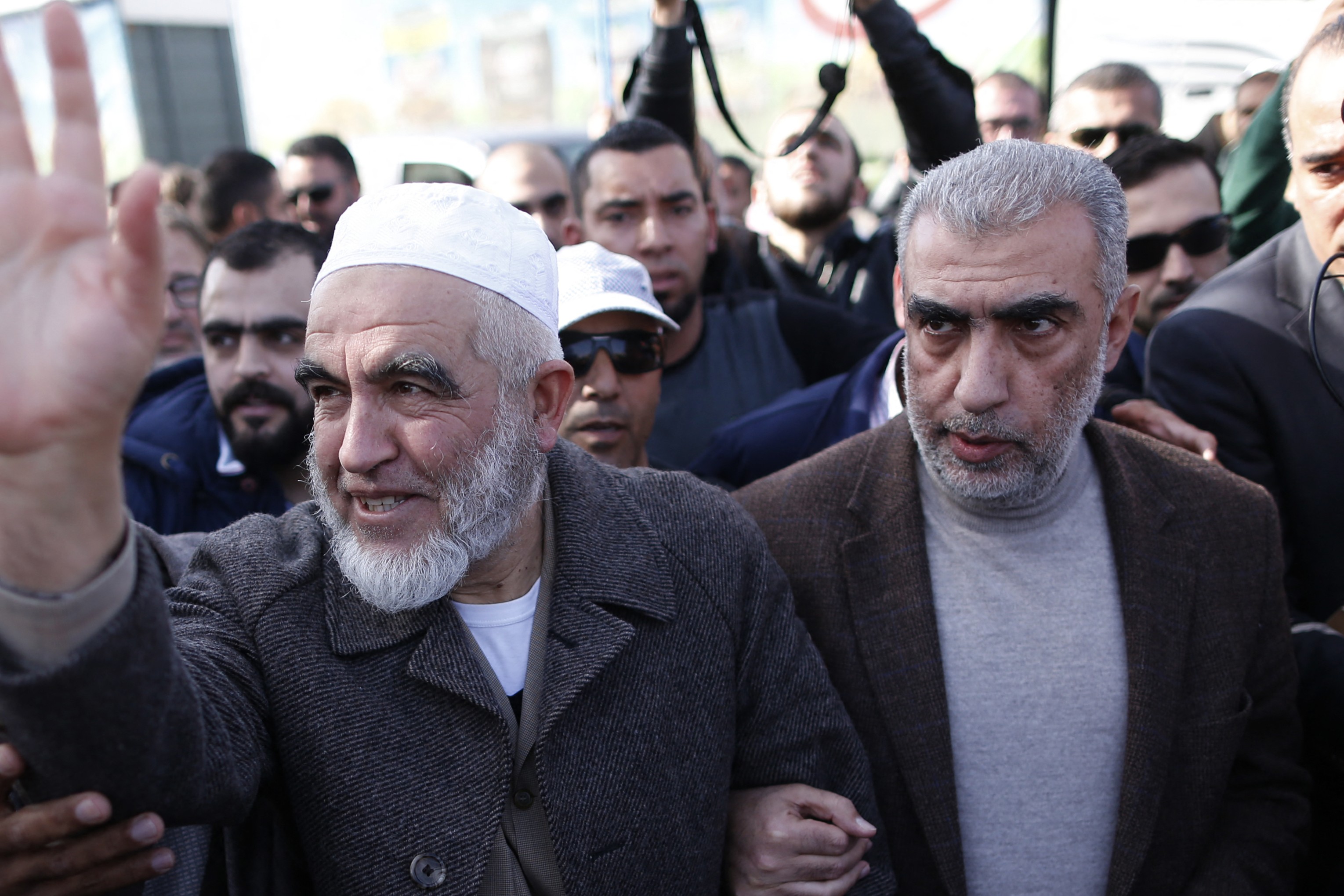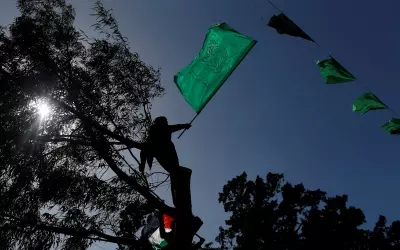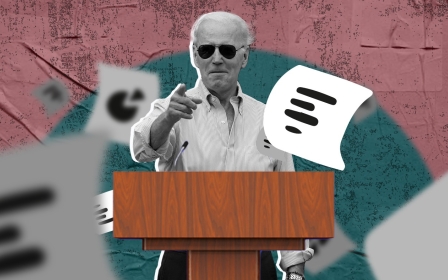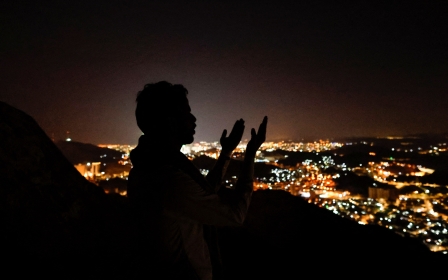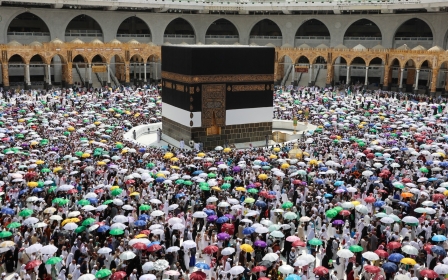Israel-Saudi Arabia Hajj flights: Palestinians wary of normalisation 'bait'
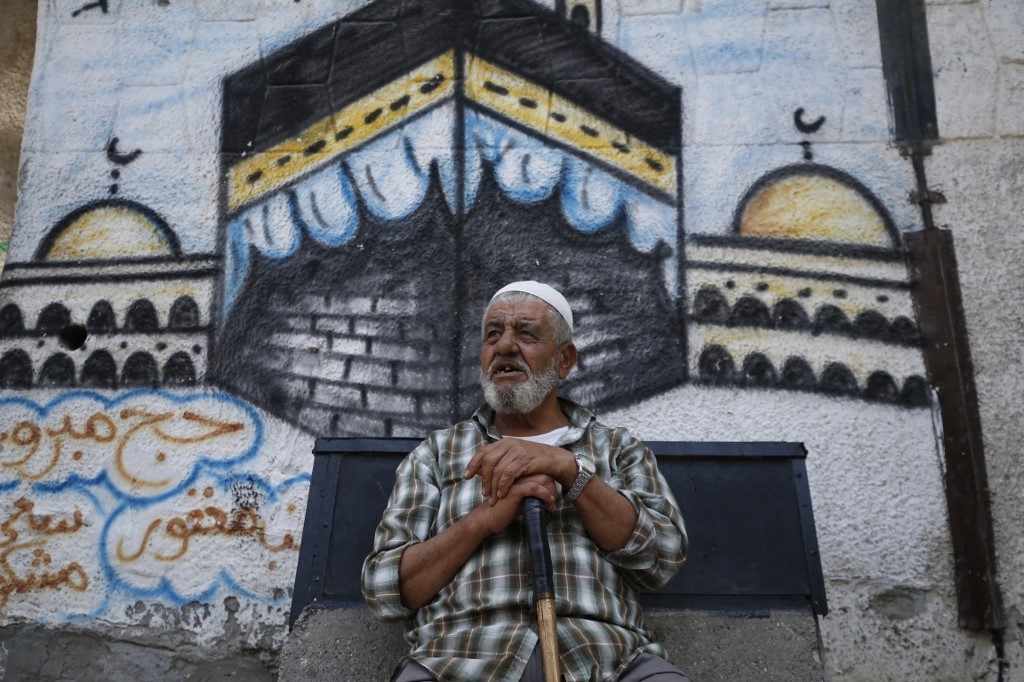
Kamal al-Khatib was not surprised to hear reports that Saudi Arabia will allow direct Israeli flights to Jeddah, carrying Palestinian pilgrims seeking to reach Mecca.
The writing has been on the wall for far too long, the prominent preacher and political figure representing Palestinian citizens of Israel, says.
"They want to sell it as if this [normalisation] brings religious benefit, and benefit to Palestinians, which is a blatant lie," Khatib, who is based in the town of Kafr Kanna in northern Israel, told Middle East Eye.
'They want to sell it as if this brings religious benefit, and benefit to Palestinians, which is a blatant lie'
- Kamal al-Khatib, Palestinian leader
Saudi Arabia said on Friday it would open its airspace to all air carriers, paving the way for more overflights to and from Israel, in a decision welcomed by US President Joe Biden ahead of his first visit to the kingdom.
"If the Israeli government cared so much for us to fulfil our religious duties to Mecca with ease, then they should first allow us to enter al-Aqsa Mosque in Jerusalem without restrictions, bans, barricades and assaults on worshippers," Khatib added.
New MEE newsletter: Jerusalem Dispatch
Sign up to get the latest insights and analysis on Israel-Palestine, alongside Turkey Unpacked and other MEE newsletters
On Wednesday, CNN and Israeli broadcaster Kan 11 reported that Saudi Arabia would soon announce a deal permitting direct Israeli flights from Tel Aviv to Jeddah to serve Palestinian citizens of Israel wishing to perform the Hajj and Umrah pilgrimages.
The Saudi General Authority of Civil Aviation (GACA) said on Friday that the country's airspace was now open to all carriers that meet its requirements for overflights, in line with international conventions that say there should be no discrimination between civil aircraft.
The reports come with US President Joe Biden himself set to fly directly from Tel Aviv to Jeddah on Friday, becoming the first American leader to do so, in another sign of warming relations in a region where bans on direct travel were once an extension of deep enmity between Israel and its Arab neighbours.
These steps, along with months of speculation and various reports, are viewed by Palestinians as a way to pave the path for a normalisation of ties between the two countries.
But many Palestinian citizens of Israel see a cynical intention behind the move, even as they concede that some will prefer the convenience of direct flights to Saudi Arabia, rather than current routes which require them to travel through Jordan.
"This is clearly not about freedom or comfort of worship for Palestinians," said Khatib. "If it was so, then what about the Palestinians in the West Bank, Jerusalem and Gaza?"
'Malignant bait'
While many Palestinian citizens of Israel reject the prospect of direct flights in principle, worshippers will find it hard to boycott the new route, Khatib said.
Currently, Palestinian citizens of Israel who seek to reach Mecca have to first travel to Jordan, often via road in old and worn-out buses.
There, they are required to pay up to 35,000 Israeli shekels ($10,000) to get a temporary Jordanian passport, as Saudi Arabia does not allow the entry of Israeli passport holders, according to one pilgrim who spoke to MEE.
The journey is often tiring and, at times, humiliating, pilgrims said, and the direct flights might be too good to turn down.
"Everyday people don't know much about [the impact of] normalisation. They just want to have a comfortable journey to perform this religious duty," Mohammed Ahmed, from Kafr Qara, near Haifa, told MEE.
"Politics is politics, but for us, we want what's easy for us," Ahmed, who plans on going to Umrah soon, added.
In the end, Ahmed believes, there won't be that much of an economic impact on Israel either way, and normalisation will happen regardless.
For Khatib, these flights are used as a "malignant bait" to integrate Israel into the Arab and Muslim world, using people's suffering on the current route via Amman to their advantage.
"Many people will likely unfortunately not heed boycott calls, because they will be lured by the comfort of taking a direct flight, especially if they may not understand the full picture behind the negative repercussions behind normalisation," he added.
Although Saudi Arabia does not officially recognise Israel, ties between the two countries have been warming in recent years and diplomacy has frequently been conducted in secret.
In November 2020, former Israeli PM Benjamin Netanyahu reportedly secretly flew to Saudi Arabia to meet Crown Prince Mohammed Bin Salman and US Secretary of State Mike Pompeo.
It came three months after Israel signed normalisation agreements with several Arab countries, including the UAE, Bahrain, Morocco and Sudan.
Riyadh was supportive of the US-brokered deals but stopped short of taking the step itself.
But for months now, reports have suggested that a formal normalisation of ties between Saudi Arabia and Israel is in the works.
Last month, it was revealed that the US was formulating a "roadmap for normalisation" ahead of Biden's visit to the Middle East, which will come in "gradual step-by-step progress", according to unnamed Israeli officials.
While it has not ruled out normalisation, Riyadh has long conditioned recognising Israel on the establishment of an independent Palestinian state within the 1967 borders, as set out by the Arab Peace Initiative, the prospect of which does not seem to be attainable any time soon.
Saudi-Palestinian solidarity
In Umm al-Fahm city in northern Israel, Taha Ighbariya has been watching reports about the prospects for normalisation with indifference.
Throughout his life, he has boycotted visiting Saudi Arabia, even for Hajj, out of principle.
'Those who neglect al-Aqsa Mosque can't claim to protect Mecca and Medina'
- Kamal al-Khatib, Palestinian leader
He says for a government that promotes itself as the protector of holy sites and the representative of Muslim affairs to run a "repressive regime internally" is not worth supporting.
"I won't pay money and promote a regime that controls these holy lands under the guise of servicing the guests of God," Ighbariya, who works as a journalist in the city that borders the West Bank, told MEE.
"This is not just about normalisation, as important as that is - it goes beyond that. This is an unjust regime that has absolute power over its population," he added.
Up until the late 1970s, Palestinian citizens of Israel could not perform Hajj for various reasons, including being subjected to Israeli martial law until 1968.
As a result, an entire generation went without performing Hajj, with good cause, Ighbariya said, adding that today's generation is no different.
The Saudi people and the royal family have long championed the Palestinian struggle as a central cause for Muslims.
Often with official Saudi blessings, Saudi Arabia was once an important source of funding campaigns for the Palestinian cause, including support for armed resistance.
A peak moment in Saudi solidarity with Palestine came in 1973, when King Faisal, who once said that his greatest wish was "to pray in Jerusalem", withdrew Saudi oil from world markets in protest over Western support for Israel during the October war between Arab states and Israel.
The shift in policy today is not necessarily a reflection of the sentiment among the Saudi public, Khatib believes, especially since many influential dissenting voices in the kingdom are behind bars.
The prevailing feeling in Saudi Arabia and across the Muslim world, he believes, still views the interests of Mecca, Medina and Jerusalem as one and the same.
"We know that the Saudi people love Palestine and they have no say in this. We know they are under a repressive regime that has used religion for decades to achieve its interest," he said.
"Those who neglect al-Aqsa Mosque can't claim to protect Mecca and Medina."
Middle East Eye delivers independent and unrivalled coverage and analysis of the Middle East, North Africa and beyond. To learn more about republishing this content and the associated fees, please fill out this form. More about MEE can be found here.


